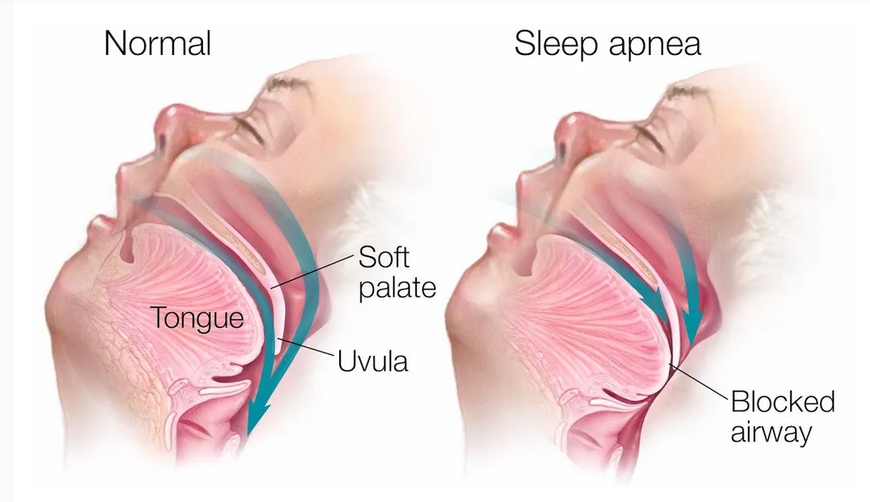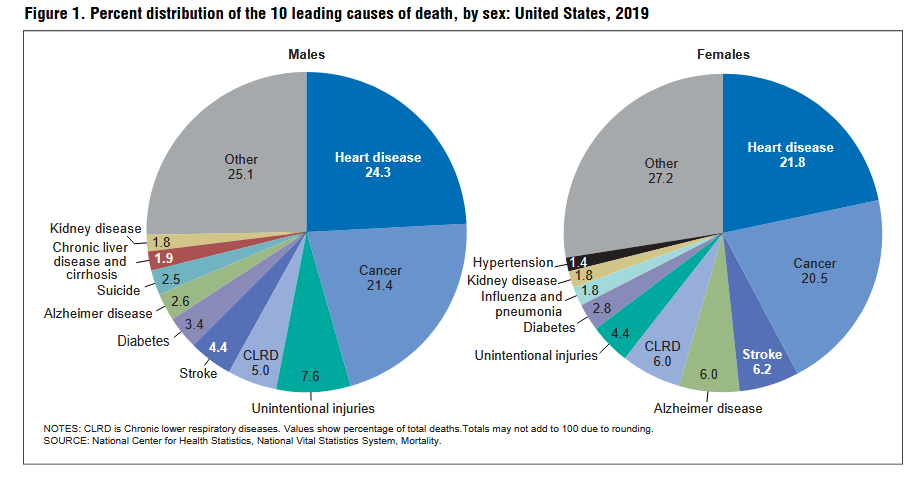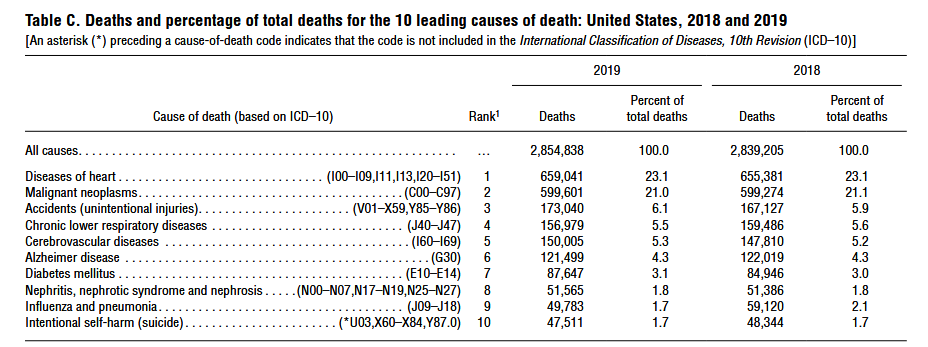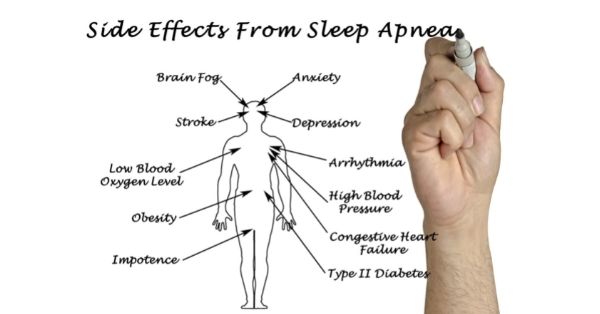Sleep apnea affects millions of people around the globe. In fact, according to the National Heart Lung and Blood Institute, nearly 18 million Americans suffer from some form of sleep apnea. But, how does sleep apnea affect your heart?
What exactly is sleep apnea? What are the causes and symptoms? Is there a relationship between sleep apnea and heart disease? and, finally, what can we do about sleep apnea? In this article we will explore these questions and others as they relate to sleep apnea and howit affects your heart health.
What is Sleep Apnea?

Sleep apnea is a condition where breathing stops for short periods during sleep. There are two main types of sleep apnea: obstructive sleep apnea (OSA), which occurs when the airway becomes blocked, and central sleep apnea (CSA), which happens when the brain fails to send signals to the muscles controlling breathing. OSA is much more common than CSA.
The most common cause of OSA is obesity. Other risk factors include male gender, older age, and genetics. Obesity causes the tongue to collapse against the back of the throat, narrowing the airways. This makes it harder to breathe through the nose. The obstruction may be temporary or permanent.
If a person stops breathing for 10 seconds or more, he/she will wake up. This is called an apneic event. During this time, the brain senses that oxygen levels are low and triggers the body’s fight-or-flight response. The result is increased blood pressure, heart rate, and respiratory rate.
These symptoms can last for several minutes. When repeated over many hours, they can lead to serious health problems such as high blood pressure, stroke, heart attack, irregular heartbeat, and even death.
Does Sleep Apnea Affect Your Heart?
You may think that sleep apnea doesn’t affect your heart, but it actually does. When you stop breathing during sleep, your brain sends signals to your body to wake up so that you can breathe again. But when you stop breathing for long periods of time, your body starts to work overtime to keep you alive.
Your heart works harder than normal, and if you have severe sleep apnea, your risk of developing heart disease increases by 50%. If you already have heart disease, you are at greater risk of having a heart attack or dying suddenly.
Sleep apnea also puts stress on your heart muscles. These muscles must pump harder to get enough blood flow to your vital organs. Over time, this can damage them. It can also make your arteries stiffer. As a result, your blood vessels narrow, which reduces blood flow. We have learned that many different things have affects on your health. For example, apple cider vinegar affects diabetes.
Sleep apnea also leads to high cholesterol and triglyceride levels in your bloodstream. This can increase your chances of getting clogged arteries.
A study published in the Journal of Clinical Endocrinology & Metabolism found that patients with untreated obstructive sleep apnea had higher levels of C-reactive protein (CRP), a marker of inflammation. CRP has been shown to predict future cardiovascular events.
Other studies show that sleep apnea may contribute to atherosclerosis, plaque buildup in your arteries. Plaque build-up is one of the leading causes of heart attacks and strokes.
Some important Facts
One thing to note is according to the CDC, heart disease is 1 of the 10 leading causes of death. In fact, heart disease and cancer ranked in the top 2 leading causes of death.
For men and women, it was noted that heart disease accounted for 24.3% of all deaths to males and 21.8% of all deaths to females. Look at the figure below to put this into perspective.

Studies have also shown from the CDC clinical evidence dating back as early as the 1960’s that established a relationship between sleep apnea and cardiovascular disease (CVD). This study also confirmed that that individuals with OSA are at increased risk for coranary artery disease, congestive heart failure, and stroke.
The good new is that this same study also indicated that treatment for sleep apnea decreased the risk. It concluded that there was evidence that treatment of sleep apnea with continuous positive airway pressure reduces the risk of CVD.
Again, to emphasize the importance of the necessity of reducing the risk of heart disease, review the table below.

Sleep Apnea Treatment
There are two types of treatment options available: lifestyle changes and medical treatments. Lifestyle changes include weight loss, quitting smoking, avoiding alcohol, and losing excess pounds. These are all important steps in treating sleep apnea. However, if these measures fail, then you should consider medical treatment.
Lifestyle Changes
Weight Loss
One of the first things doctors recommend when dealing with sleep apnea is weight loss. If you have been overweight or obese, you may need to lose at least 30% of your current weight before you see improvements in your sleep apnea. It is also recommended that you get regular exercise. Exercise helps keep your metabolism running efficiently. One way to do this is to learn how to lose weight with an elliptical device.
Quitting Smoking
Quitting smoking is another important step in treating sleep apnea because it reduces inflammation throughout the body. Inflammation plays a role in causing obstructive sleep apnea.
Avoid Alcohol
Alcohol increases your chances of developing sleep apnea. Drinking too much alcohol can make it difficult for your body to absorb oxygen during sleep.
Exercise
Regular exercise is essential for maintaining a healthy lifestyle. Exercise improves your overall health and helps reduce stress. Exercise also keeps your metabolism working properly.
Track Your Sleep
There are several different types of fitness devices that track your sleep. There are sleep tracking mats, sleep tracking fitness trackers and even sleep tracking rings. Each of these types of devices have their benefits and draw backs. For example some people have asked us why their Fitbit is not tracking sleep. But, we found solutions to those types of problems.

Medical Treatment Options
Medications
Over the counter medications like nasal sprays and decongestants may help relieve congestion caused by sleep apnea. They do not treat the underlying condition.
Surgery
Surgical procedures like uvulopalatopharyngoplasty (UPPP) and radiofrequency ablation (RFA) remove tissue from the soft palate and tonsils. These surgeries improve airflow in the upper airway. UPPP is usually done under general anesthesia. RFA is performed using local anesthesia. Both procedures are considered surgical options.
CPAP Therapy
The most common treatment for OSA is continuous positive airway pressure (CPAP). This involves wearing a mask through which pressurized air flows continuously throughout the night. It may sound like torture, but it works by keeping the airways open. Patients usually wear CPAP at home overnight, although some people find they can tolerate using it only while sleeping..
The goal of CPAP therapy is to provide continuous positive air pressure to the patient’s airways during sleep. The air pressure forces the tongue forward, opening the back of the throat. This allows for unobstructed breathing.
The benefits of CPAP therapy include improved blood circulation, reduced blood pressure, decreased cholesterol levels, increased energy, and better moods
Final Thoughts on does Sleep Anpea affect Your Heart
The first step to improving your health is understanding what causes your condition. Sleep apnea affects your brain, heart, lungs, and blood vessels. This means that it has a direct impact on your overall health. It’s important to understand that sleep apnea isn’t just a problem with your breathing while you sleep. In fact, it’s much worse than that.
Your body doesn’t know when you’re awake or asleep. So, when you stop breathing during the night, your brain thinks you’re still sleeping. This triggers a series of events that leads to poor oxygenation of your tissues. This lack of oxygen can cause damage to your heart and other organs. It can also lead to high blood pressure, stroke, and diabetes.
So, how do you know if you have sleep apnea? There are several tests that can diagnose the condition. But, since these tests aren’t 100% accurate, you may need to see a doctor. There are many treatments available for sleep apnea. These include CPAP machines, oral appliances, surgery, and lifestyle changes.
If you think you might be suffering from sleep apnea, talk to your doctor about your symptoms. He or she will perform a physical exam and ask questions to determine whether you have sleep apnea. You should also consider seeing a sleep specialist who specializes in treating sleep disorders. A sleep specialist can conduct an extensive evaluation to determine if you have sleep apneas.
He or she may recommend certain tests to confirm the diagnosis. If so, he or she will likely refer you to a pulmonologist or otolaryngologist. A pulmonologist is a physician who focuses on diseases of the respiratory system. An otolaryngologist is a medical doctor who specializes in ear, nose, and throat conditions.
Both specialists will examine your mouth, neck, ears, sinuses, and chest. They may order additional tests such as X-rays, CT scans, and MRIs. They may also prescribe medications to treat any underlying conditions. And, they may suggest various surgical procedures to help you breathe more easily.
In addition to all this, there are lifestyle modifications you can make to improve your quality of life. For example, you can lose weight and quit smoking. You can also avoid alcohol and caffeine. Finally, you should work closely with your doctor to develop a treatment plan that works best for you.